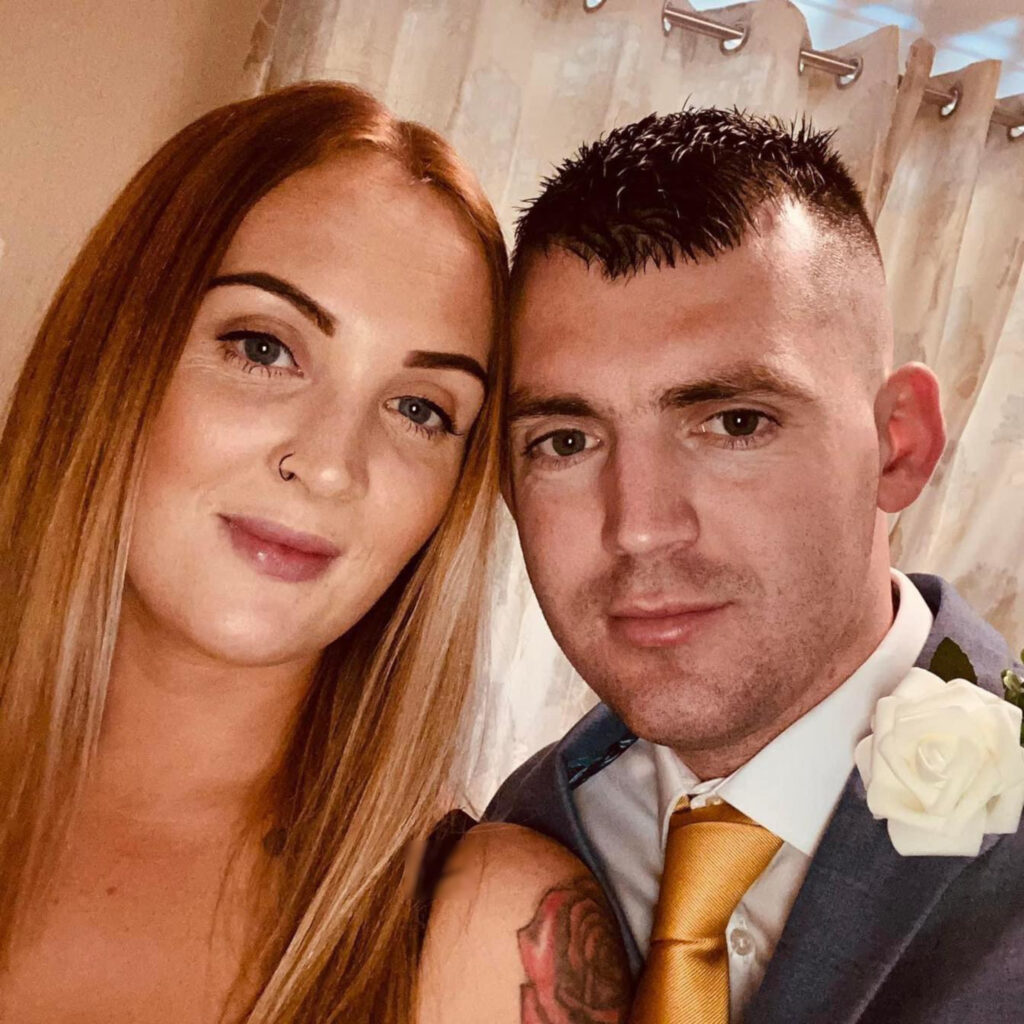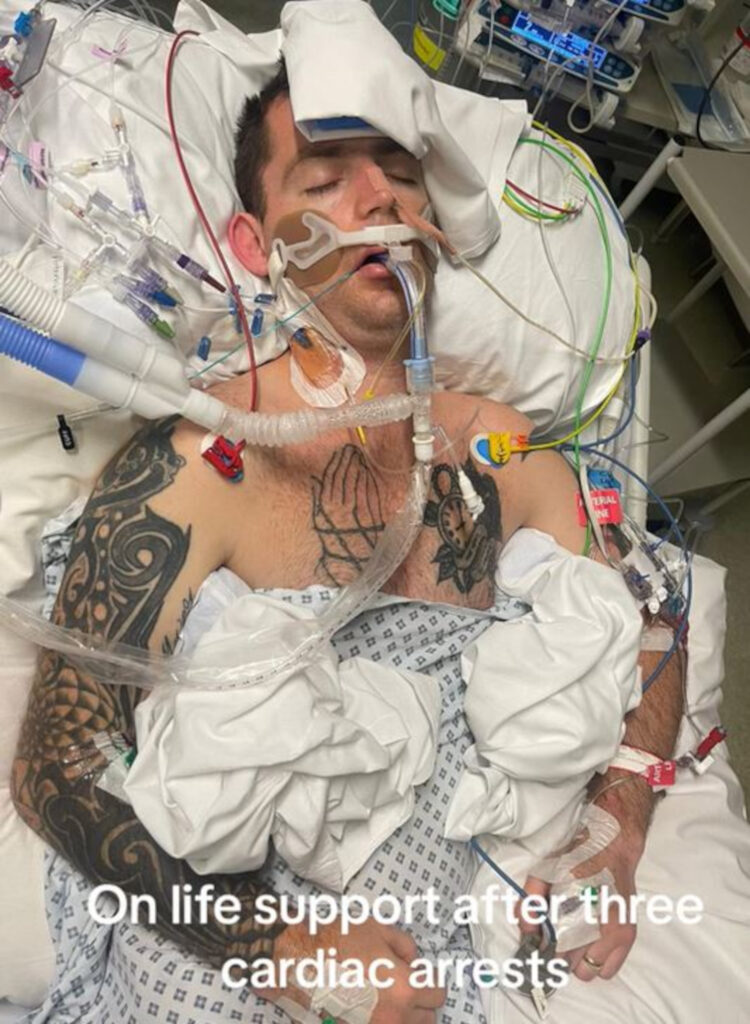A DAD has defied insurmountable odds after surviving three cardiac arrests that left him clinging to life on his son’s first birthday.
Michael Revell-Quayle from Yeovil, Somerset had risen early for son Carter’s big day last month and had just finished singing happy birthday when his breathing soon became shallow.
The 29-year-old was struck with a cardiac arrest, collapsing and requiring immediate CPR from wife Shannon, 30, before being rushed to hospital – where he suffered two more cardiac arrests.
Despite soldier Michael being given only a 7% chance of survival by doctors, he miraculously woke up just 24 hours later and is now recovering at home, with professionals baffled by the entire incident.
The dad-of-three received heart scans that revealed he had been in otherwise perfect health, leaving doctors at a loss for how the cardiac arrests even happened.
Michael’s superhero wife, who also works as a nurse, gave her husband a fighting chance as she continuously performed CPR until paramedics arrived after he collapsed at his home.
With three cardiac arrests in a short period of time, the young family were devastatingly told that their husband and father had a very slim chance of survival, and to begin preparing for the worst.
Despite the odds, Michael survived and after four weeks in hospital, underwent surgery earlier this month to have a mini defibrillator implanted under his arm to help prevent further arrests.
The young dad is now home after the ordeal and has a new lease on life, spending time recovering alongside his family.

Speaking to Michael today, he said: “It happened on the 3rd of May – my son’s first birthday.
“I woke up around 4am, said happy birthday to him, and then around 6:30am my wife noticed I was breathing funny – it’s called agonal breathing – gasping for air, your last breaths before death.
“My wife jumped straight on me, doing CPR, and called the ambulance.
“She’s a nurse, she got my heart going and stayed on me until the ambulance and paramedics came, which only took them seven minutes, so very fast.
“They then took over, giving me two shocks to restart my heart – which got me stable in the ambulance but when I got to hospital I had a further two cardiac arrests.
“Both times, I got shocked, so six shocks in total. They prepared my family for the worst as only 7% make it but I beat all odds.
“My family were in massive shock, crying their eyes out as you could expect. Everyone has been so supportive of me – it’s overwhelming.

“My wife is struggling a little bit as she was the one to see it all and she was the one to save my life, so I’ll forever be grateful.”
Michael explained that doctors were left at a loss for why he suffered the arrests, saying: “I was in hospital for four weeks, having scans which showed no sign of anything wrong – a fit and healthy heart.
“I’m a fit 29-year-old lad who’s in the army, so a massive shock. I then had surgery and an implantable cardioverter defibrillator box fitted.
“Surgery was good. It was a two-hour operation and they fitted a box inside, under my left arm. It’s a mini defibrillator which would shock me if it ever happened again.
“My heart scans are fine, so there’s no reason it happened. It’s a puzzle for doctors – they did say [that the] only thing they can put it [down] as is ‘sudden death’ – no actual causes.
“I’m safer now than I was. It’s a battery that needs changing every five-seven years. I’m on meds as well.
“The NHS has been amazing. I couldn’t thank them any more, looking after me for four weeks.

“My life is definitely different now. I took a good week to adjust to it but it’s also how your mind can cope with it.
“Not being able to do my normal stuff is hard at the moment but I am only two weeks into recovery, so I’m doing amazing.
“I have a different view on life now. I’ve beaten all odds to survive but not only that I’m back on my feet and doing amazing smashing recovery, it really is an incredible journey.”
Cardiac arrests can happen to anyone of any age and medical history. Signs of cardiac arrest include: fatigue, dizziness, shortness of breath, chest pains and heart palpitations.
It’s important to get treated straight away – especially if experiencing abnormal breathing, which can often be mistaken for snoring, gasping, snorting or laboured breathing.
The survival rate for an out-of-hospital cardiac arrest is just one in ten people as of 2022, according to data from the British Heart Foundation.
